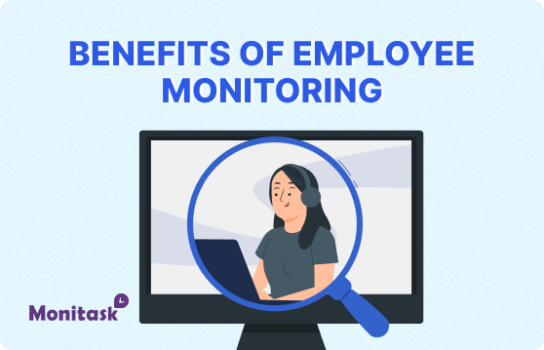Employee Reimbursement
Employee reimbursement is a crucial aspect of human resources management that involves compensating employees for expenses incurred during the course of their work. This process ensures that employees are not left out of pocket for necessary business-related expenditures and helps maintain a positive work environment. In this comprehensive guide, we'll explore the intricacies of employee reimbursement, its importance, best practices, and common challenges.
What is Employee Reimbursement?
Employee reimbursement refers to the process by which an employer repays an employee for out-of-pocket expenses incurred while performing job-related duties. These expenses can range from travel costs and meals to office supplies and professional development fees. The primary goal of reimbursement is to ensure that employees are not financially burdened by expenses that are necessary for their job performance.
Reimbursement policies vary widely among organizations, but they typically outline eligible expenses, documentation requirements, and the process for submitting and approving reimbursement requests. A well-structured reimbursement policy helps maintain transparency, fairness, and compliance with tax regulations.
Types of Reimbursable Expenses
Understanding what expenses are typically reimbursable is essential for both employers and employees. While specific policies may vary, some common categories of reimbursable expenses include:
1. Travel Expenses
This category often includes transportation costs (airfare, train tickets, mileage for personal vehicle use), lodging, and meals while traveling for business purposes. Many companies use per diem rates to simplify meal reimbursements during travel.
2. Business Meals and Entertainment
Expenses related to client meetings, team-building events, or business-related entertainment may be reimbursable. However, it's important to note that tax laws often limit the deductibility of these expenses for the company.
3. Professional Development
Costs associated with attending conferences, workshops, or pursuing job-related education and certifications often fall under this category. This may include registration fees, required materials, and related travel expenses.
4. Office Supplies and Equipment
Employees who purchase necessary supplies or equipment for work use, especially in remote work scenarios, may be eligible for reimbursement.
5. Home Office Expenses
With the rise of remote work, some companies offer reimbursement for home office setups, including furniture, internet costs, and other necessary equipment.
6. Mileage and Commuting
Use of personal vehicles for business purposes (excluding regular commuting) is often reimbursable based on a per-mile rate. Some companies also reimburse for parking and toll fees incurred during business travel.
The Importance of Employee Reimbursement
Implementing a fair and efficient reimbursement system is crucial for several reasons:
1. Financial Fairness
Reimbursement ensures that employees are not personally financing company expenses, which is particularly important for lower-wage workers who may not have the financial means to cover significant business costs.
2. Employee Satisfaction and Retention
A clear and generous reimbursement policy can contribute to employee satisfaction and loyalty. When employees feel that their employer values their contributions and doesn't expect them to shoulder business expenses, it can lead to increased job satisfaction and reduced turnover.
3. Legal Compliance
In many jurisdictions, certain types of reimbursement are required by law. For example, in California, employers are required to reimburse employees for all necessary expenses incurred in the course of their employment.
4. Tax Benefits
Properly structured reimbursement programs can offer tax advantages for both the employer and employee. Reimbursements that qualify as "accountable plans" under IRS guidelines are not considered taxable income for the employee and are tax-deductible for the employer.
5. Budgeting and Cost Control
A well-managed reimbursement system allows companies to track and control business-related expenses more effectively, aiding in budgeting and financial planning.
Best Practices for Employee Reimbursement
To maximize the benefits of an employee reimbursement program while minimizing potential issues, consider the following best practices:
1. Develop a Clear Policy
Create a comprehensive, written reimbursement policy that clearly outlines eligible expenses, documentation requirements, submission deadlines, and the approval process. This policy should be easily accessible to all employees and regularly updated to reflect any changes.
2. Use Technology to Streamline the Process
Implement digital expense reporting systems that allow employees to easily submit expenses, attach receipts, and track the status of their reimbursement requests. This can significantly reduce processing time and minimize errors.
3. Educate Employees
Provide thorough training on the reimbursement policy and process. This can help reduce misunderstandings and ensure compliance with company guidelines.
4. Set Reasonable Limits
Establish clear limits for various expense categories to prevent excessive spending. These limits should be reasonable and reflect actual costs in different locations.
5. Ensure Timely Reimbursement
Process reimbursements quickly to avoid causing financial strain on employees. Many companies aim to reimburse expenses within 1-2 weeks of submission.
6. Regularly Review and Update Policies
Periodically review and update your reimbursement policies to ensure they remain relevant, competitive, and compliant with changing laws and business needs.
7. Consider Corporate Credit Cards
For employees who frequently incur business expenses, providing corporate credit cards can simplify the process and reduce the need for out-of-pocket spending.
Common Challenges in Employee Reimbursement
While reimbursement programs offer many benefits, they can also present challenges for both employers and employees:
1. Expense Fraud
Unfortunately, some employees may attempt to submit fraudulent or inflated expense claims. Implementing strong verification processes and using digital tools can help detect and prevent fraud.
2. Delayed Submissions
Employees sometimes delay submitting expense reports, which can complicate accounting and budgeting processes. Encouraging prompt submission through reminders and user-friendly systems can help mitigate this issue.
3. Policy Violations
Employees may inadvertently or intentionally violate reimbursement policies, leading to disputes or denied claims. Clear communication and education about policies can help reduce these occurrences.
4. Tax Compliance
Ensuring that reimbursement programs comply with tax laws can be complex, especially for companies operating in multiple jurisdictions. Consulting with tax professionals is often necessary to navigate these challenges.
5. Balancing Generosity and Cost Control
Finding the right balance between offering a competitive reimbursement policy and controlling costs can be challenging. Regular benchmarking against industry standards can help strike this balance.
Legal Considerations in Employee Reimbursement
Employee reimbursement is subject to various legal considerations, which can vary by jurisdiction. Some key legal aspects to consider include:
1. Minimum Wage Laws
In some cases, failure to reimburse certain expenses could result in an employee's effective wage falling below the legal minimum. Employers must ensure that reimbursement policies do not inadvertently violate minimum wage laws.
2. State-Specific Laws
Some states have specific laws regarding employee reimbursement. For example, California Labor Code Section 2802 requires employers to reimburse employees for all necessary expenditures incurred in the course of their duties.
3. Tax Implications
The IRS has specific guidelines for what constitutes a tax-free reimbursement under an "accountable plan." Reimbursements that don't meet these criteria may be considered taxable income for the employee.
4. Documentation Requirements
Legal and tax compliance often requires maintaining detailed records of expenses and reimbursements. Employers should establish clear documentation requirements that satisfy both internal needs and external compliance standards.
The Future of Employee Reimbursement
As the nature of work continues to evolve, so too will employee reimbursement practices. Several trends are shaping the future of reimbursement:
1. Remote Work Reimbursement
With the increase in remote and hybrid work arrangements, companies are developing new policies to address home office expenses, internet costs, and other remote work-related expenditures.
2. Automation and AI
Advanced expense management systems are increasingly using artificial intelligence to automate expense categorization, flag potential policy violations, and even predict future expenses based on historical data.
3. Real-Time Reimbursement
Some companies are exploring real-time reimbursement options, where employees can receive immediate repayment for expenses through digital wallets or company-issued cards.
4. Sustainability Considerations
As organizations focus more on sustainability, reimbursement policies may evolve to incentivize more environmentally friendly choices, such as public transportation or electric vehicle usage.
5. Flexible Benefit Programs
Some companies are moving towards more flexible benefit programs that allow employees to allocate a set amount of funds towards various expenses, including those traditionally covered by reimbursement policies.
Conclusion
Employee reimbursement is a critical component of human resources management that impacts employee satisfaction, financial well-being, and organizational efficiency. By implementing clear policies, leveraging technology, and staying attuned to legal requirements and emerging trends, organizations can create reimbursement programs that benefit both employees and the company as a whole.
As the workplace continues to evolve, so too will the nature of business expenses and reimbursement practices. Staying flexible and responsive to these changes will be key to maintaining an effective and equitable reimbursement system. Ultimately, a well-managed reimbursement program can contribute significantly to a positive work environment, helping to attract and retain top talent while ensuring that employees feel valued and supported in their roles.


